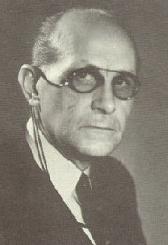A Quote by Roy Bedichek
The so-called literature of escape, with its growing popularity, is in part a revolt against the tyranny of clocks.
Quote Topics
Related Quotes
Society today is no longer in revolt against particular laws which it finds alien, unjust, and imposed, but against law as such, against the principle of law. And yet we must not regard this revolt as entirely negative. The energy that rejects many obsolete laws is an entirely positive impulse for renewal of life and law.
Louis XIV was very frank and sincere when he said: I am the State. The modern statist is modest. He says: I am the servant of the State; but, he implies, the State is God. You could revolt against a Bourbon king, and the French did it. This was, of course, a struggle of man against man. But you cannot revolt against the god State and against his humble handy man, the bureaucrat.
Protection, therefore, against the tyranny of the magistrate is not enough; there needs protection against the tyranny of the prevailing opinion and feeling, against the tendency of society to impose, by other means than civil penalties, its own ideas and practices as rules of conduct on those who dissent from them.
To rail and rant against tyranny is to manifest inferiority, for there is no tyranny but ignorance; to be conscious of one's powers is to lose consciousness of tyranny. Self government is not a remote aim. It is an intimate and inescapable fact. To govern oneself is a natural imperative, and all tyranny is the miscarriage of self government. The first requisite of freedom is to accept responsibility for the lack of it.
Poetry, even when apparently most fantastic, is always a revolt against artifice, a revolt, in a sense, against actuality. It speaks of what seems fantastic and unreal to those who have lost the simple intuitions which are the test of reality; and, as it is often found at war with its age, so it makes no account of history, which is fabled by the daughters of memory.
there are camels which have the quality which in humans is called the revolutionary spirit, and the caravan leader fears to keep one of these in his ranks, because its instinct is always toward revolt against authority. One such camel will sometimes break up the discipline of a whole train, for, owing to the mass mentality of the herd, even peaceful beasts are suddenly infected with the spirit of revolt and in a few minutes the whole caravan is in utter disorder.






























